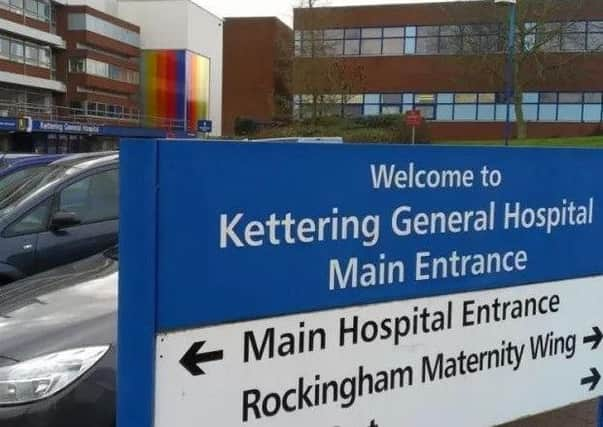Four in ten Kettering cancer patients unsure if treatments are working


Patients aged 16 and over who underwent cancer-related treatment with the trust between April and June 2017 were asked about their care as part of this year’s National Cancer Patient Experience Survey.
The survey showed experiences of cancer patients across England were “generally very positive”, with patients giving an average rating of 8.8 out of ten.
Advertisement
Hide AdAdvertisement
Hide AdFor Kettering General , this figure was 8.69, an improvement on the previous year.
However, the results raised concerns about the level of information provided while patients were having treatment.
Some 60% of patients at the Kettering General Hospital NHS Foundation Trust answered ‘yes, completely’ when asked if they had been given enough information in terms they could understand about how their radiotherapy or chemotherapy was going.
The rest answered ‘yes, to some extent’ or ‘no’, which were both counted as negative responses.
Advertisement
Hide AdAdvertisement
Hide AdThe results were slightly worse for patients having radiotherapy than for those undergoing chemotherapy - just 59% of the former said they had enough information, compared to 61% of the latter.
On average, 35% of patients in England said they had not had enough information.
Dr Jeanette Dickson, vice president of clinical oncology at The Royal College of Radiologists, said cancer specialists worked in high-pressure environments, and that giving ongoing updates to patients during their treatment could be very complicated.
She continued: “Many cancer treatments are not straightforward and response to therapy is not immediately able to be assessed as patients would wish.
Advertisement
Hide AdAdvertisement
Hide Ad“While patients are being treated with modern chemotherapy and radiotherapy they are in a fast-moving situation where progress might seem to stall and then change quickly, and the impact of treatments is not always clear every step of the way, especially as we try novel drugs that act in new ways.
“Doctors are aware of this, but perhaps need to acknowledge this uncertainty more often in view of this survey.
“Ultimately, the survey results remind us that cancer patients are in a vulnerable situation, and oncologists need to be continually assessing all their patients’ needs every time they have a consultation or a meeting.”
The only England-wide figure that saw a drop in this year’s survey concerned support provided by GPs.
Advertisement
Hide AdAdvertisement
Hide AdFour in ten patients said they didn’t think staff at their local practice had done everything they could to support them while they were going through treatment, or that they had only done so to some extent.
In Kettering General , 44% of patients said the same.
Across England, some of the lowest scores were seen in patients’ experiences of health and social services - such as home visits by nurses and physiotherapy.
Only 47% of the patients surveyed for Kettering General said they had enough support from health and social services during their treatment.
For support provided after treatment had ended, this dropped to 34%.
Advertisement
Hide AdAdvertisement
Hide AdCancer Support UK, which provides practical and emotional help for people with cancer, said the survey showed post-treatment support options needed to be “urgently addressed”.
Chief executive Gemma Holding said: “Inequalities in health and well-being provision across the UK mean that some patients - based on where they live - have better access to, and receive higher quality health care than others.
“We know that when people’s official treatment ends, rather than feeling better, this is often when people can feel at their worst.
“However, once physical treatment ends, cancer patients are often discharged with no support to manage the ongoing emotional challenges.
“Psychological support for people with cancer is essential to recovery, during and after treatment.”